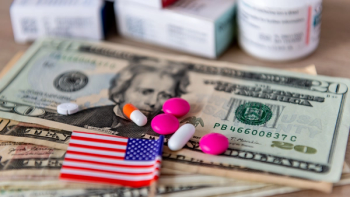
Where Patients are Turning for Trustworthy Health Information
In this Pharmaceutical Executive video interview, Jen Butler, Chief Commercial Officer for Pleio, talks about where patients are turning for trustworthy health information and some strategies that can be used to verify information.
In this Pharmaceutical Executive video interview, Jen Butler, Chief Commercial Officer for Pleio, discussed the significant threat of misinformation to public health, citing a 2021 report by former Surgeon General Murthy. She highlighted that 70% of false news is shared more often than true news due to its emotional appeal. Butler emphasized the importance of verifying health information by directly contacting trusted sources like Cleveland Clinic, Mayo Clinic, and Kaiser Permanente. She also noted the role of pharma in supporting patient communities and the need for media and health literacy. Butler also suggested that peer-to-patient platforms can enhance patient engagement and adherence, particularly for chronic conditions.
Where can patients turn for trustworthy health information? What strategies can be used to verify information?
I mean, it's so traditional, but it still stands true. I'm on my Instagram feed. I'm going to get information through social media feeds, but to verify and fact check, it's so important to go directly to the source. If you're looking through, you're coming through a diagnosis, with a condition, and you're kind of seeing and hearing feeds that are coming through on your Instagram or TikTok, and you get some perspectives — go directly to the sources of the health systems.
There's so many health systems that have amazing sources out there, like the Cleveland Clinic, Mayo Clinic, Kaiser, Permanente, Penn Medicine. Even if you just Google and your diagnosis, and what I also want to stress is that what pops up on the top of your search is going to sponsored ads and sponsored content, so make sure you scroll down until you get to those validated sources. There's so many great sources out there.
I have to say that health literacy has been a big, big topic, and I think a lot of these health systems have played into it nicely and recognizing the way that we do absorb information as well. I used to work in my fore way into healthcare. I oversaw marketing for commercial population and for health plan in in the Boston area, and I can say that while you don't turn to your health plans, there are a lot of health plans that have great sources of information as well that are validated by medical teams, and same with the health systems for medication. When you have medication, you're seeking information on medication, specifically, you might not think of it, but your pharma brands and the sites and your manufacturers have also a great resource of information.
Patients don't necessarily seek out pharma, but they have the same medical teams in place to publish information and validate the content. And as much as we don't like to hear all the ISI mumbo jumbo and when we hear the information coming through, think of it more as like a stamp of validation that it's a credit information that's coming your way so that you don't have to second guess it. And I think that's where it's a blend. You want to be aware and find out what people are. You're going to seek out other people and patients’ opinions. But when you want to really get the facts on symptoms, diagnosis, treatment, medications, go directly to the source.
Newsletter
Lead with insight with the Pharmaceutical Executive newsletter, featuring strategic analysis, leadership trends, and market intelligence for biopharma decision-makers.




